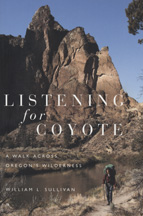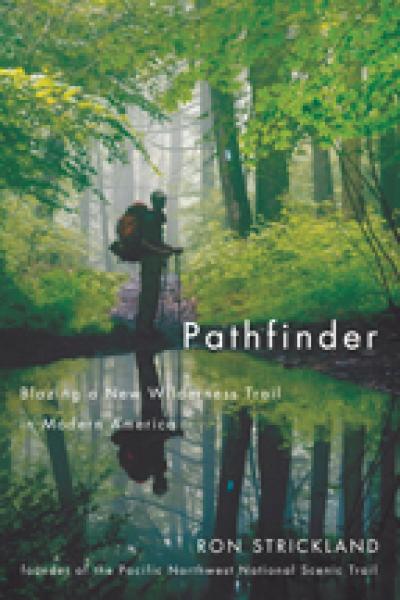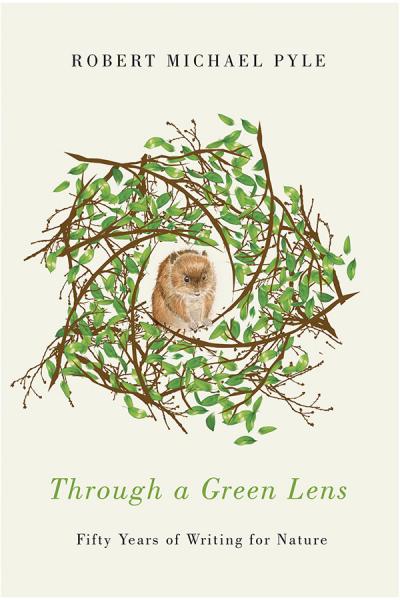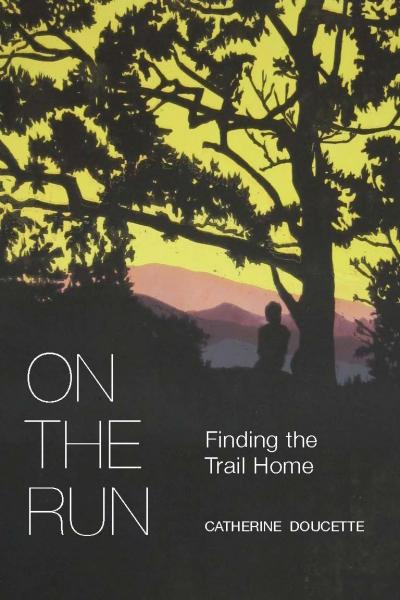
Listening for Coyote
William L. Sullivan
The spirit of the wilderness is an elusive quarry. William Sullivan's quest for it took him on a 1,361-mile solo backpacking trek across his native Oregon. His remarkable route traversed 4 mountain ranges and 18 designated Wilderness Areas. It led through fogbound rain forests, windswept glacial cirques, and sunbaked desert canyons — from Oregon's western shore at Cape Blanco to the state's easternmost point at the bottom of Hells Canyon.
Listening for Coyote is Sullivan's classic account of his 2–month journey. Along the way he encountered blizzards, poisonous mushrooms, and marauding bears, but Sullivan's book is more than just an outdoor adventure story. He spices his journal with the observations of a talented naturalist, notes on history and geology, demonstrations of survival skills, and encounters with some unforgettable people.
These last include a political scientist who leaves his classrooms to protect Bald Mountain from the Forest Service, a braided and ear ringed forest ranger who takes up chewing tobacco as a political move, a camouflaged elk hunter who uses only a bow and hopes to be reincarnated as a stag elk, and an ancient widow who farms alone from a remote and rickety miner's cabin.
What all of these people share, and what the whole book illustrates, is a deep connection to the wilderness itself, that place we must preserve where humans still do not control things. Written in a soft-spoken but powerful style, Sullivan's book illustrates with living examples just why we are right to work to save such places.
About the author
William L. Sullivan is the author of eight books about Oregon, including Hiking Oregon's History, Exploring Oregon's Wild Areas, and four detailed guidebooks in his popular 100 Hikes series. His most recent book, A Deeper Wild, is a historical novel based on the life of Joaquin Miller, the "Poet of the Sierras." He lives in Eugene, Oregon.
Read more about this author
Preface to this edition
Prologue
- The Klamaths
- The Cascades
- The Ochocos
- The Blue Mountains
- Hells Canyon
Epilogue
Appendix: Gear and Food Lists
Acknowledgements
Time seems to pass at a slower pace in the wilderness.
Fifteen years have passed since I walked across Oregon to write Listening for Coyote. Still, the adventures in this book--and the underlying search for the meaning of wilderness--might have happened today. I suspect that Oregonians will always be struggling with the dilemma of the state's pioneer heritage, making peace with the fragile, wild land we have made our home.
On the other hand, many of the people and policies described in this book have changed over the years. Recreation has replaced logging as the primary use of national forests, now accounting for more than 80% of the forests' economic impact. The 1,300-mile "New Oregon Trail" I scouted across the state has been added to the state's long-range trail plan, although the route remains largely undeveloped.
Another change since my hike is that geologists have revised their view of the Klamath Mountains' past. Now it appears the range began as a string of Pacific island volcanoes, much like the Hawaiian archipelago. The island chain was gradually "rafted" east on shifting seafloor plates until it collided with the North American continent.
My wife Janell still describes the months of my trek as the most difficult time of her life. While I was gone she ran through thirteen babysitters, trying to juggle the demands of our two small children with her part-time job. She made good on her promise to "escape" for her own adventure too, and in 1989 took the train beyond the Arctic Circle in Norway to see the midnight sun. Now that our children are in college Janell and I often hike together to research new books, and we spend much of the summer at the log cabin we built by hand on a roadless stretch of Oregon's Siletz River.
Since my marathon hike I have written more than half a dozen other books about Oregon. "Exploring Oregon's Wild Areas" appeared first, followed by a popular series of "100 Hikes" books and "Hiking Oregon's History." My latest work, "A Deeper Wild," is a historical novel about the flamboyant Oregon pioneer poet Joaquin Miller. Information about these books, and about several hundred recommended Oregon hiking trails, is available online at http://www.oregonhiking.com/.
Some of the people described in the book have gone on to surprising careers. For example Lou Gold, the Earth First! activist whom I met at a wilderness camp after he had chained himself to bulldozers to prevent the logging of Bald Mountain, later ran for the United States Senate on the Pacific Party ticket. That political bid fell short, but Gold continues to lecture throughout the country in defense of environmental causes.
I even had a phone call from Ron, the marijuana grower who held me hostage during a very tense wilderness lunch. He reported that a sheriff discovered his pot-growing operation the year after we met. Ron served six months in prison and then moved to Southern California. There he became president of a cable television company. As Ron explained it to me, "Selling cable TV is a lot like growing marijuana. I'm still ripping people off, but it's legal."
Over the years I have been astonished by the variety of people who have come up to me at slide shows, art fairs, and booksignings to tell me how "Listening for Coyote" has affected their lives. An elderly gentleman assured me he has reread it every spring for a decade to inspire himself for the summer hiking season. A college instructor said she assigns it to her class on Oregon geography. A Texas couple insisted it convinced them to retire in Oakridge, Oregon, and write hiking guides.
The most startling story of all came from a young man who marched up to me at the Oregon Authors Table at the Oregon State Fair and grasped my hand. An accident, he told me, had left him bedridden, in pain, with two-thirds of his body covered by burns. he had sent away the friends who came offering solace, telling them he only wanted to die. His closest friend had brought him a book, but he had thrown it angrily aside. Later, bored and lonely, he had sullenly picked up the book — Listening for Coyote — and he began to read. Gradually he remembered the beauty and wonder of the wilderness outside the hospital walls. The fact that I had dared to strike off across Oregon alone, he told me, had given him the courage to rise from his hospital bed and face the world again.
For those who know and love Oregon from the inside out, the wilderness can be a powerful force. We discover it, and feel it, and live it, if we tune our ears with enough care. If we take the time to listen for Coyote.
March 2000
Eugene, Oregon
"An endearing, engaging writer… [His work has] the energy, the wonder and sometimes the humor of Mark Twain's Roughing It."
"This is a wonderful story of the search for a new Oregon Trail. Nature lovers, active and passive, will find Sullivan's walk a vicarious pleasure."
"This fascinating account of a contemporary wilderness journey should become an American classic."




